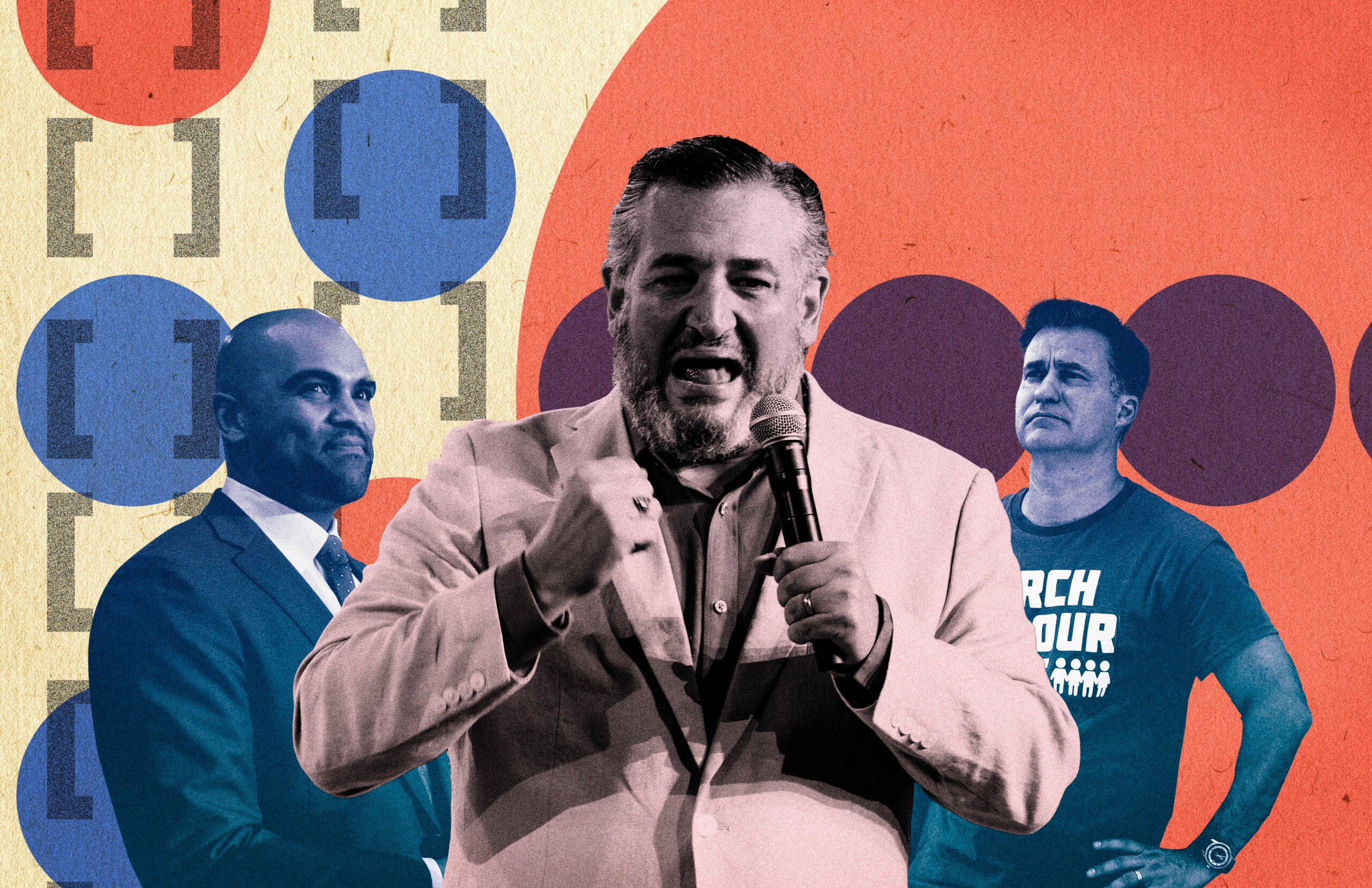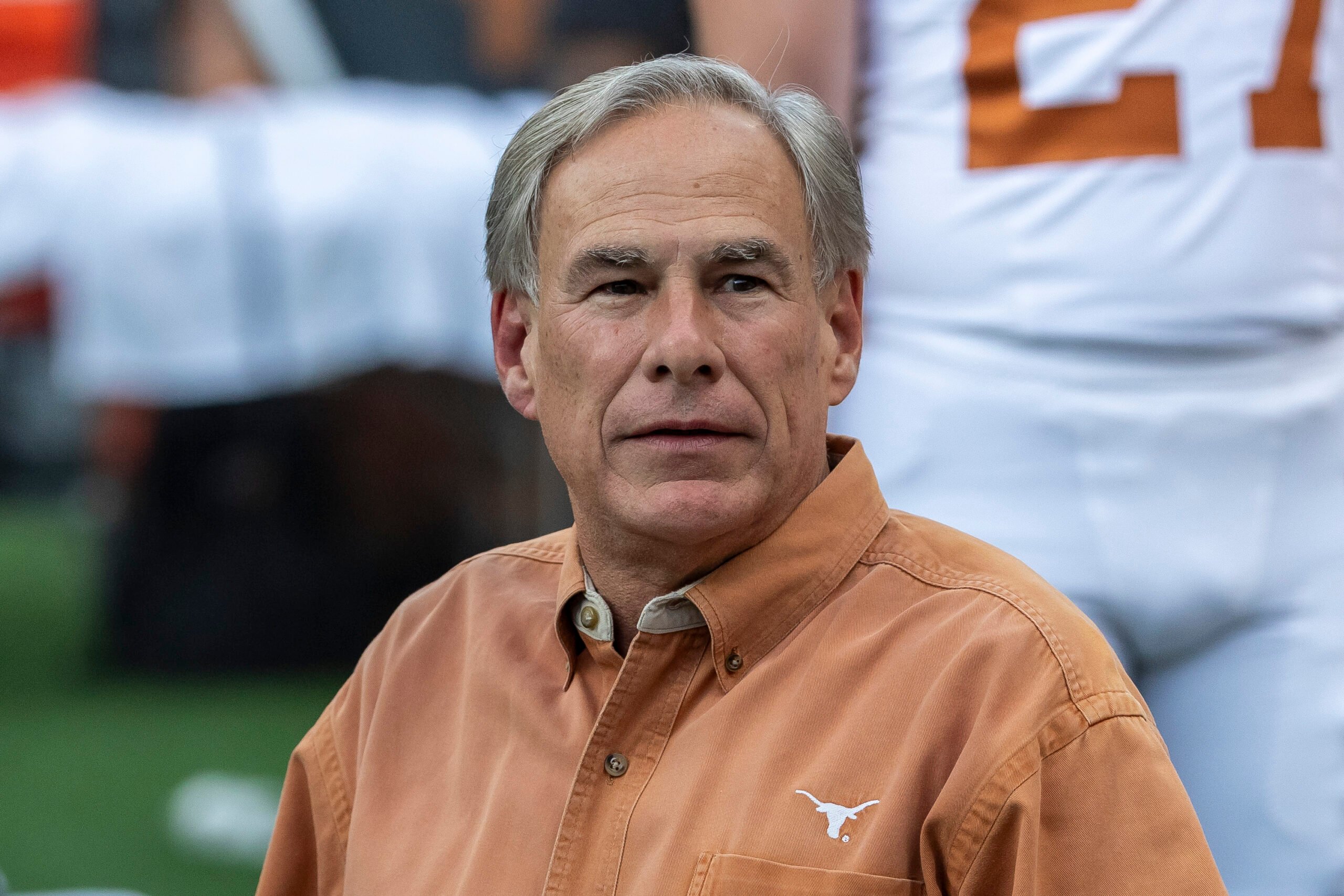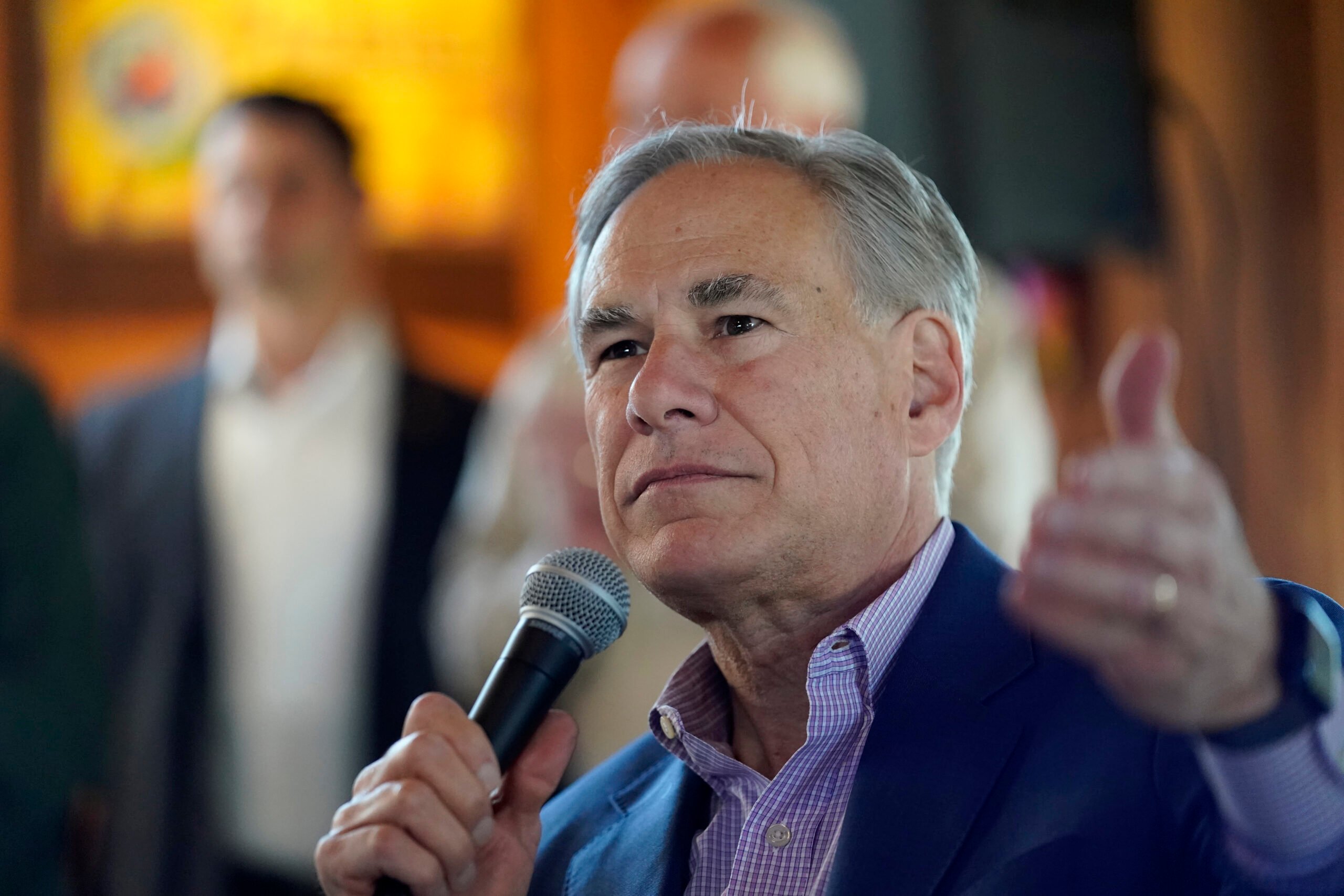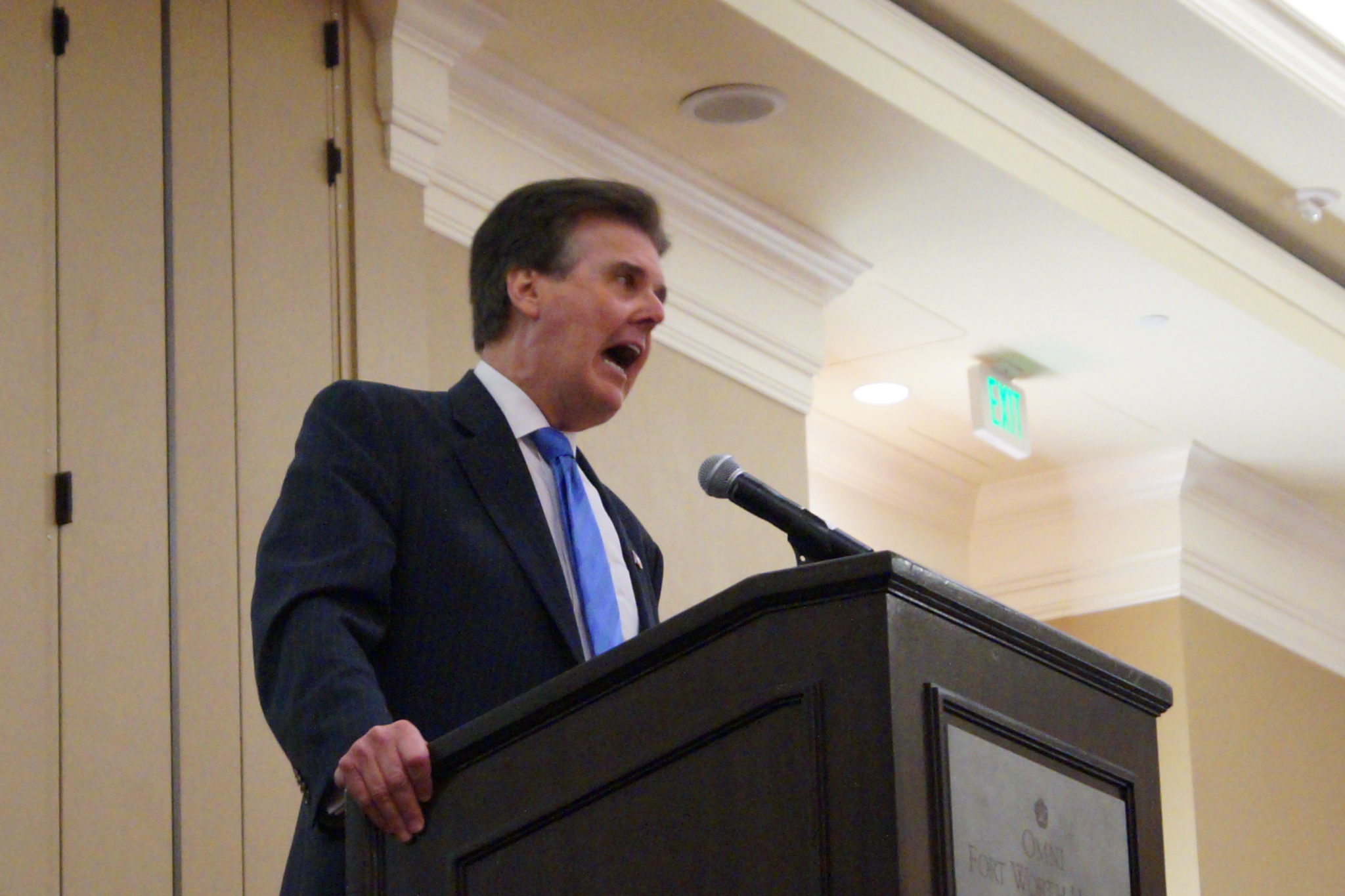
Republican Convention Wrap-Up: Who’s Hot, Who’s Not

Above: Dan Patrick, addressing an anti-gay rights rally, wants you to know that he is not backing down.
The Republican Party’s convention in Fort Worth this weekend provided an uncommon opportunity to see many Republican lawmakers mix with the party’s rank and file, and each other. That’s a lot of egos in one room. The 2014 convention was a sort of changing of the guard—so it’s an opportunity, too, to take stock of the changing fortunes of the party’s future (and former) leaders.
Dan Patrick, nominee for lieutenant governor
Candidates often treat party conventions as a way to pivot from the red-meat rhetoric of the primary to the conciliatory language of the general election. Often, politicians use the convention to pledge that they’ll govern for all citizens, not just the people who made them the nominee of their party. Dan Patrick wants you to know—emphatically and insistently—that this is not his intention.
“You elected me, not the media and not the Democrats,” Patrick told the convention in a fiery Sunday morning speech. As lieutenant governor, he said, he would wake up every morning and think first of the people in that room—representatives of the some five percent of Texas voters who exercised their franchise in the Republican primary runoff. He would think of them first, and no one else. He’s their man. He is not yours.
In the speech, he talked about reaching out to Hispanic and African-American voters. It was a lie that they were natural Democrats. But his desire to broaden the GOP’s big tent was hard to square with the role he played in the convention’s platform fight over immigration. He had tried to water down the pro-guest worker “Texas Solution” to get the base to support it, but that gambit failed—and the hard-line plank that passed instead was taken from his own campaign website. While it was being debated on the floor, Patrick’s distinctive “Secure our Border” signs, in the shape of a white-picket fence, lined the arena’s railings. And when the whole thing was over, some delegates scoured the area for left-behind signs to take home as souvenirs.
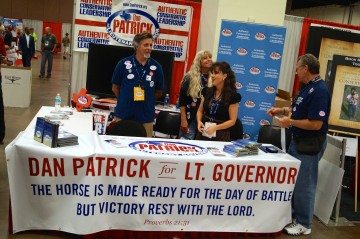
It’s in the eye of the beholder, but it seemed possible, at times, to detect a harder edge to Patrick’s public persona than he displayed in the primary. That’s really saying something. Had the brutal last month of the runoff, and Patrick’s victory, changed his outlook? At the campaign’s booth in the convention’s trade show, Patrick’s free swag had been covered with stickers that directed readers to Proverbs 21:31. For those unfamiliar, the full passage was written on the huge white banner that draped Patrick’s booth: “The horse is made ready for the day of battle, but victory rests with the Lord.” Is Patrick the horse? Is the day of battle coming, or has it passed? Would he carry this martial outlook with him to the Senate?
After his speech, I asked Patrick’s campaign staff if he’d be making other public appearances. They didn’t know. One had seen him at the Omni earlier. “Dan has a mind of his own,” he said.
Greg Abbott, nominee for governor
Abbott kept a peculiarly low profile at the convention. His main address pivoted on a novel rhetorical framework: He laid out his plan to ready Texas for the state’s bicentennial in 2036. After 20 years of one-party rule in the state, the effort to present a vision for the future is admirable, I suppose. But the plan itself was unsurprisingly empty. For the Texans of 2036, Abbott will end road funding diversions and destroy CSCOPE—two demands of the conservative base that might have vanished from Texans’ radar by 2016, let alone 2036. He also plans to make Texas “number one in education,” a declaration which has all the substance of a New Year’s resolution-maker who declares their intent to become “number one in exercise.”
Scott Turner, announced candidate for Speaker of the House
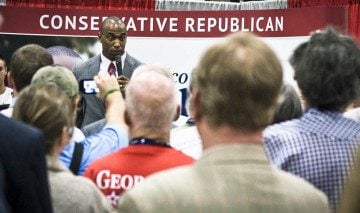
Abbott aims to lead the state, and Patrick aims to lead the Senate. Who will lead the House? Many conservatives hate House Speaker Joe Straus, who’s set to be the most moderate Republican in a position of power in state government after November. They bungled an effort to run a competitor for speaker for the 2013 session, and the groups mobilizing against him are trying to back a serious candidate for speaker next go-round in the form of state Rep. Scott Turner (R-Frisco), a charismatic former football player. Turner had one of the biggest installations in the convention’s trade show, and Turner’s meet and greet attracted hundreds of delegates. Turner buttons and novelty items flooded the convention.
Elsewhere, anti-Straus groups papered the convention with flyers accusing Straus of corruption. In the party’s platform, there was a call to amend the constitution to make the speaker of the House a statewide elected position.
The 2016 presidential hopefuls
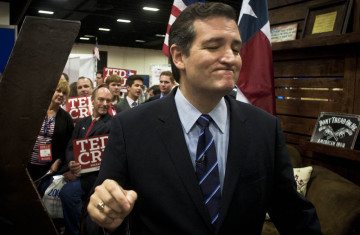
Rick Perry helped kick off the convention, then left. (Then showed up at the X Games in Austin.) He might be the most important governor in Texas history, so it’s remarkable how much he feels like old news. He placed fourth in the convention’s 2016 straw poll, behind even conservative icon and non-politician Ben Carson.
Ted Cruz remains the gold standard of Texas tea-party politicians. Two years after his shock victory, his buttons were still the fastest-selling at the convention. After he addressed the convention, swarms of delegates skipped Rand Paul’s speech to take pictures with Cruz at the trade show. Cruz crushed his opponents in the straw poll, winning 43.4 percent of the vote.
While delegates lined up by the hundreds to take pictures of Cruz, a lonely cardboard cutout of Paul sat across the aisle.
George P. Bush, nominee for land commissioner
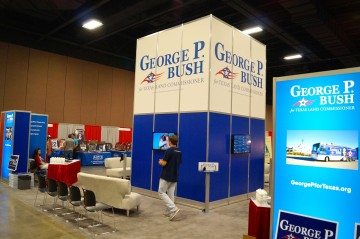
Bush continued his expensive campaign to win the hearts of conservatives. He’s raised vast amounts of money even though he ran against one no-name, no-money candidate in the primary, and is facing a candidate that’s barely better equipped in the general election. How to spend that money? Bush was the only candidate who became a sponsor of the convention—putting his name up alongside other leading lights of the conservative movement, like Verizon and Anheuser-Busch.
Bush paid for a huge space near the front of the convention’s trade show, which looked like the kind of pop-up installation tech companies build at South by Southwest. Though the space boasted comfy chairs and cell-phone charging stations, it seemed to be undervisited.
David Dewhurst, outgoing lt. governor
Like Perry’s, this was Dewhurst’s last convention in office. Given how divisive the primary was, it’s hard to blame him for skipping it entirely and jetting to France for the 70th anniversary of D-Day.
Dewhurst made the obligatory call for party unity in the two-minute video that was played at the convention, but he also found time for some sweet footage of American bombers, under a musical riff from Saving Private Ryan.
“As Democrat dollars flow into our state from beyond our borders,” Dewhurst asked, “will we respond with overwhelming force, as the Allies did?”
Given that, near the beginning of his political career, Dewhurst’s campaign team once inserted a photo of a Luftwaffe officer into an ad honoring American servicemen, it’s a bit rich that Dew’s saying goodbye to the party by comparing Democrats to the Nazi army. But there you go.
